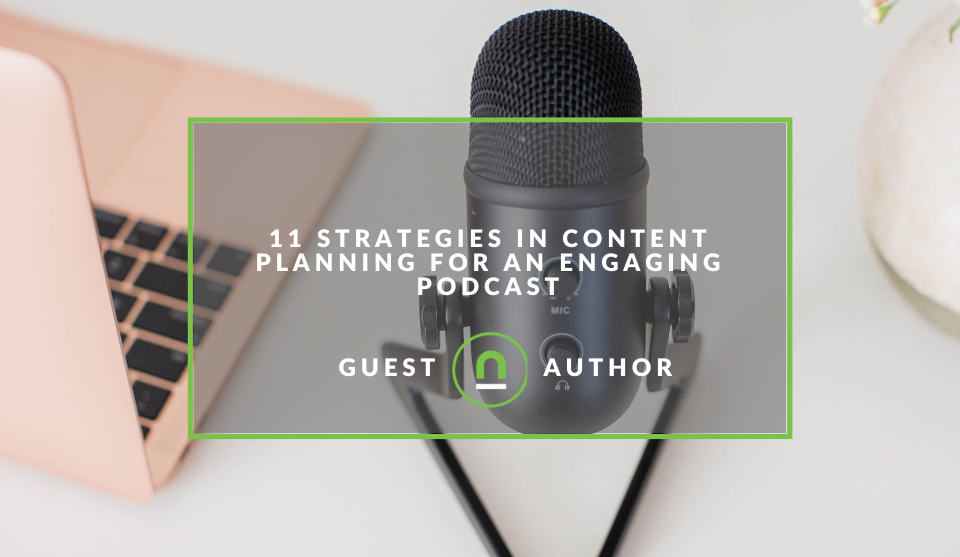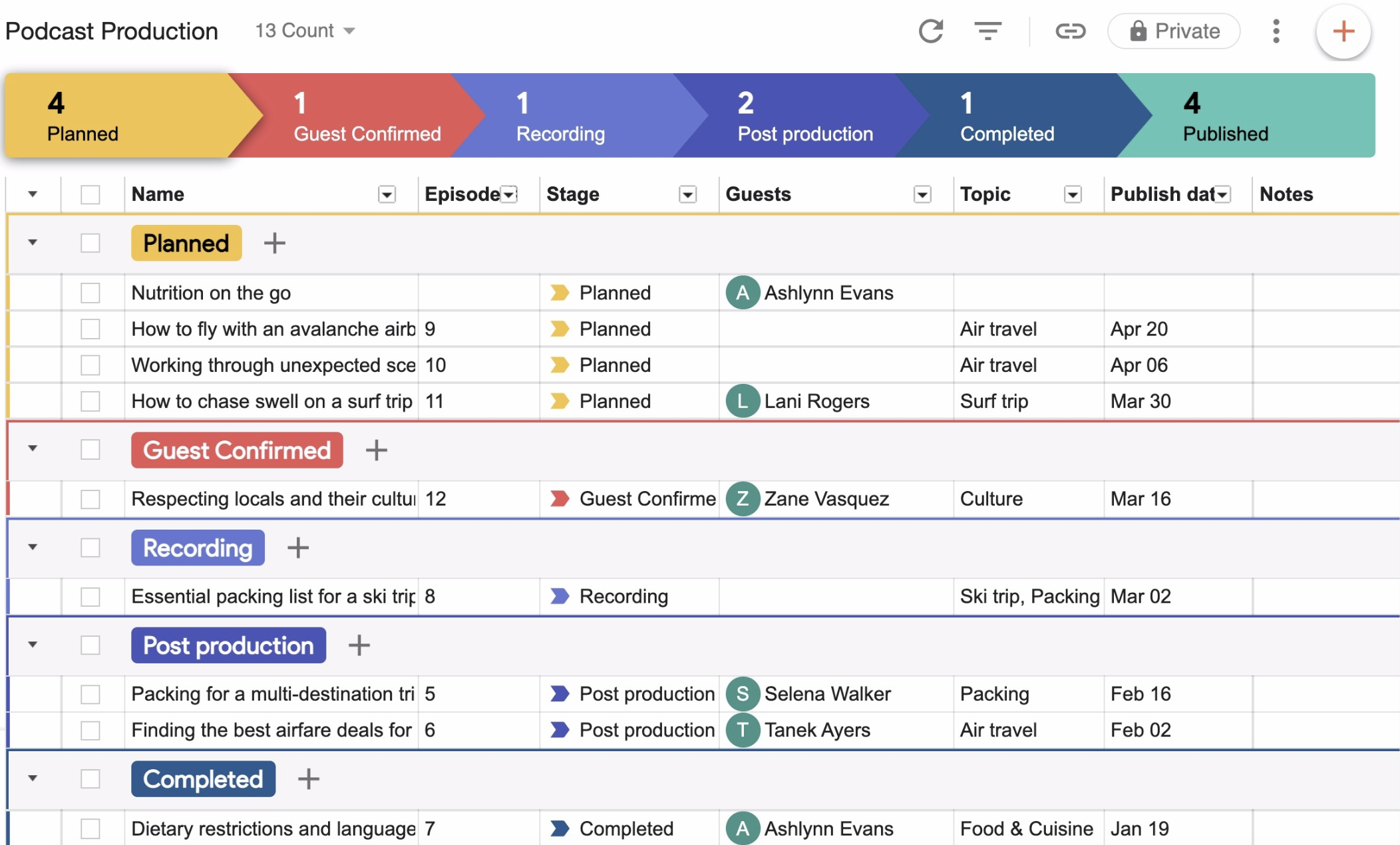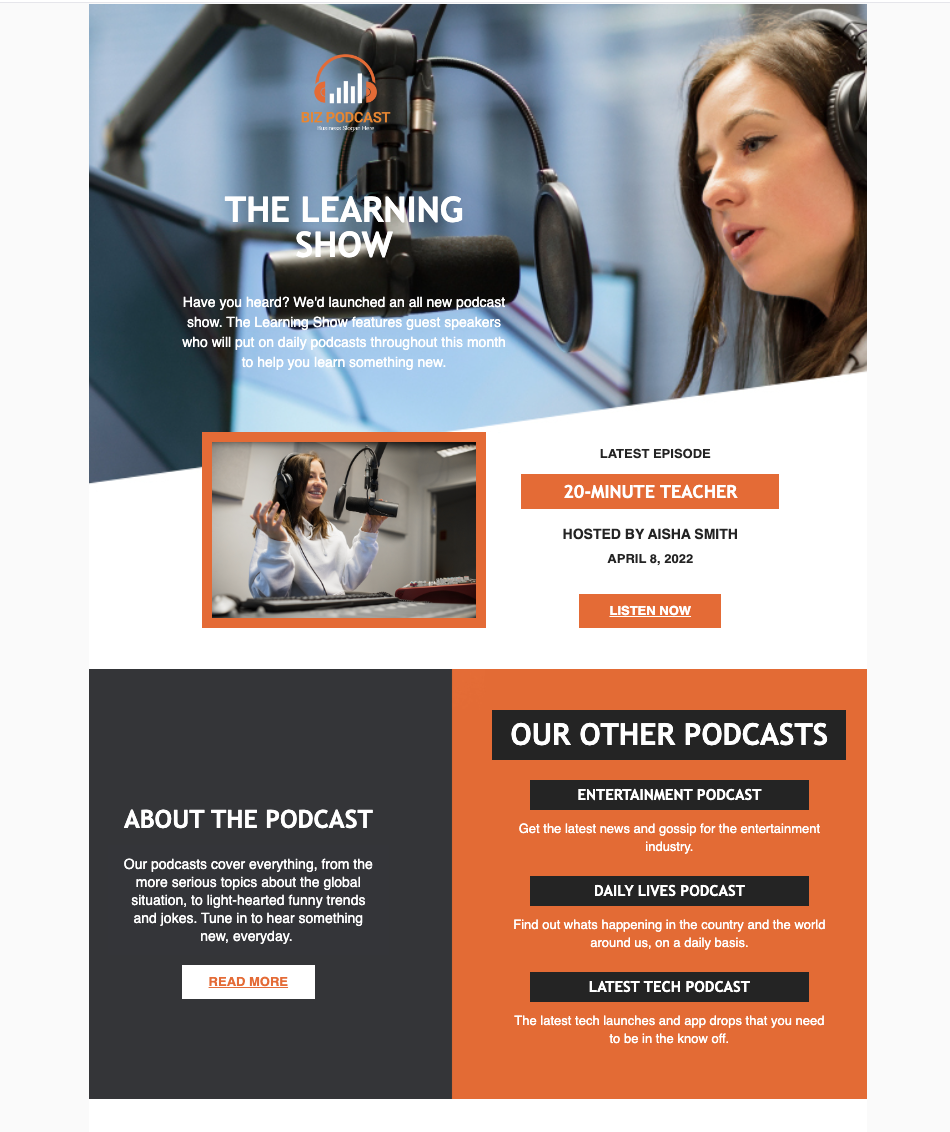Recent posts

nichemarket Advice
Why Video Production Companies Still Outshine AI
24 December 2025

Press Releases
Where You Can Find International Remote Jobs For South Africans
23 December 2025

Money Talks
Why Cross-Border Payments Are Slow, Tedious, and Expensive
17 December 2025

Money Talks
The Rise Of Trading Platforms In South Africa
16 December 2025
Popular posts
Extravaganza
Trending Music Hashtags To Get Your Posts Noticed
24 August 2018
Geek Chic
How To Fix iPhone/iPad Only Charging In Certain Positions
05 July 2020
Extravaganza
Trending Wedding Hashtags To Get Your Posts Noticed
18 September 2018
Money Talks
How To Find Coupons & Vouchers Online In South Africa
28 March 2019
11 Strategies In Content Planning For An Engaging Podcast
21 July 2023 | 0 comments | Posted by Burkhard Berger in Industry Experts
Starting a podcast can be an exciting journey. You can talk about what you're passionate about, connect with people who have the same interest, and perhaps even make a name for yourself in the podcasting stage. As any seasoned podcaster will tell you, creating a podcast that's worth listening to requires more than just a good idea. It needs strategic podcast content planning.
In this guide, we're going to explore 11 crucial strategies for planning engaging podcast content. These strategies will cover everything from understanding your target audience to offering paid content upgrades, all designed to captivate your podcast listeners and keep them coming back for more.
But this isn't just a list of strategies. By the end of this read, you'll have a roadmap to guide you as you plan your podcast content strategy and make your podcast engaging.
Whether you're new to the podcast world or trying to upscale your current show, prepare to plunge into the world of podcast content planning.
Let's get started.
Strategy 1: Understand Your Audience
This is the foundation of any successful podcast. After all, your podcast isn't just about you - it's about your listeners.
So, who are your listeners? What are their interests, their challenges, and their aspirations? Understand these aspects so you can create actionable content that resonates with them. For instance, if you're starting an overseas hiring podcast and your target audience is business owners who need remote virtual assistants, you might want to focus on how to hire the best executive assistants, where to find them, and expert advice on the hiring process.
But how do you get to know your audience? One way is through surveys. You can use social media or email to ask your audience about their preferences. What podcast topic ideas are they interested in? What type of content or format do they prefer - interviews, solo episodes, or roundtable discussions? The surveys will tell you the kind of content they're looking for.
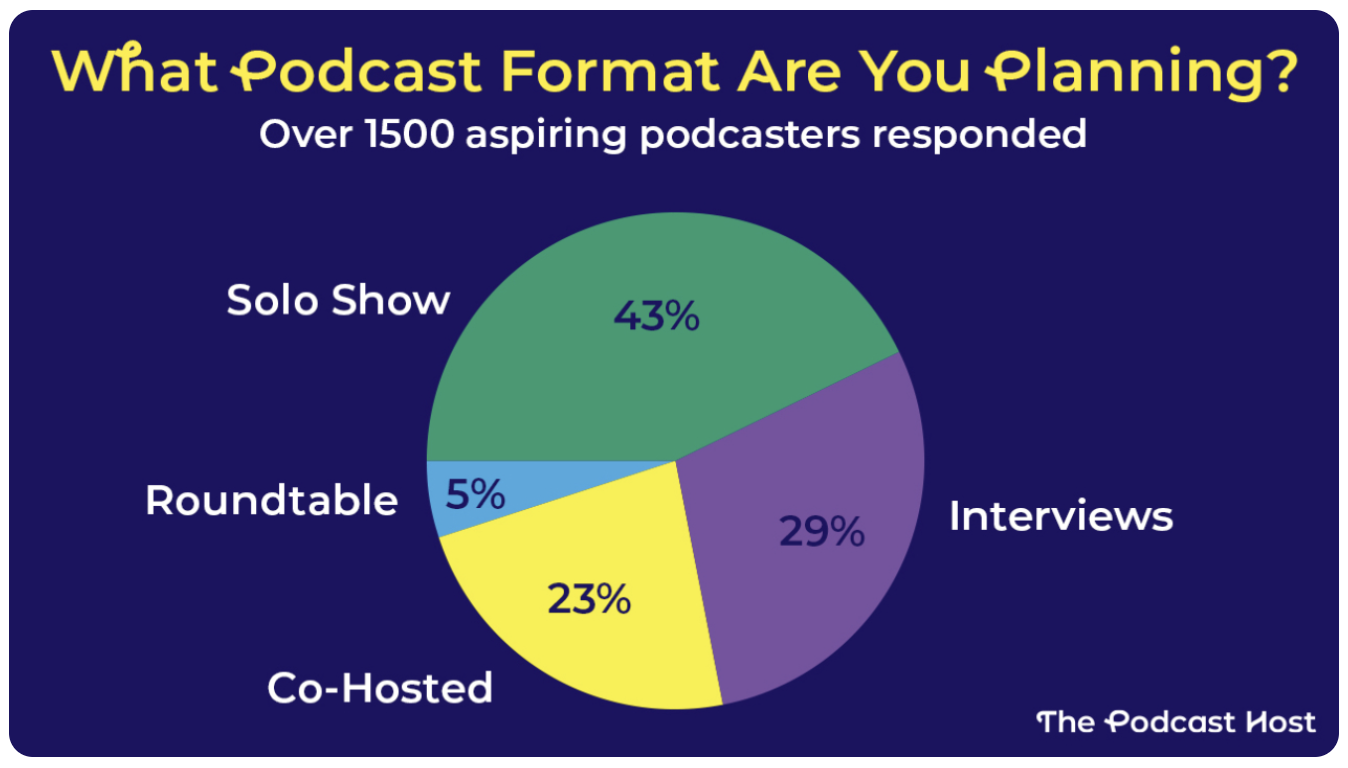
Expert Advice:
Co-hosted podcasts get your regular fresh perspective on topics and you'll have someone to throw banters to. This keeps the idea growing, the conversation going, and builds your credibility as an informative podcast.
Another way is through social listening. Pay attention to the conversations happening in your niche. What questions are people asking? What problems do they need solutions to? These can be great starting points for your podcast episodes.
Remember, understanding your audience isn't a one-time thing. It's an ongoing process. As your podcast grows, your audience might evolve, and their interests might change. So, keep track of the trends, and your podcast will keep hitting the spot.
Strategy 2: Choose Relevant & Interesting Topics
After understanding your audience better, decide what you're going to talk about. Your discussions should strike a balance between your passions and what your audience is drawn to.

Start by brainstorming a list of potential topics for relevant content. Think about what your audience is asking and the challenges they're facing. These can all make for great podcast topics.
For example, if you're running a podcast about eCommerce stores for fashion lingerie and your audience is interested in starting their own business like yours, you might cover topics like "How to choose the best suppliers" or "Expert advice on choosing the best marketplace."
Or if you're running a podcast on sports like basketball, football, or MMA, you can discuss a specific playoff game or recommend a sports streaming platform they can check out.
Once you have a list, prioritize the topics based on your audience's interests and your expertise. You want to choose topics that you're knowledgeable and passionate about. This will come across in your podcast and make for more engaging content.
Don't be afraid to get creative with your topics. You can bring on a guest to offer a new perspective or do a deep dive into a compelling podcast episode topic that's often overlooked. Keep your audience's interests at the forefront of your topic selection process. This way, you'll create content that not only you love producing, but your audience loves listening to.
Strategy 3: Invite Noteworthy Guests
Having guests on your podcast can add a fresh perspective, provide expert insights, and even help you reach a wider audience. But it's not just about inviting anyone—you want guests who will truly add value to your podcast.
Start by making a list of potential guests. These could be experts in your podcast's niche, influencers your audience admires, or even people with inspiring stories that align with your podcast's theme.
For example, if you're running a podcast about dog training, you might invite dog trainers, veterinarians for medical advice, or pet lovers who own many dogs.
Once you have a list, it's time to reach out. Craft a personalized invitation explaining why you think they would be a great fit for your podcast and how they can provide value to your listeners. Don't forget to point out the perks for them - whether it's boosting their book, promoting their enterprise, or simply letting their ideas resonate with your audience.
When you have a guest on your podcast, make them feel valued. Prepare for the interview by researching their work, asking thoughtful questions, and listening actively to their responses. Remember, a great guest can take your podcast to new heights, so make the most of these opportunities.
Strategy 4: Utilize Storytelling
Storytelling can make complex topics more digestible, make your podcast more memorable, and most importantly, create a deeper connection with your listeners.
But how do you incorporate storytelling into your podcast? Here are a few actionable ways.
First, structure your episodes like a story. Every good story has a start, a middle, and an end. The beginning sets the stage and introduces the topic. The middle dives into the meat of the topic, and the end wraps everything up and offers a conclusion or takeaway.
Next, use anecdotes and personal experiences. These not only make your podcast more relatable but also help illustrate your points more engagingly. For instance, if you're discussing the challenges of custom software development, sharing your experiences when you were just starting until you mastered the development cycle can make the topic more tangible for your listeners.
Or if your audience is in the yard management and warehouse operations industry, you can cover how tedious it was to do things manually compared to now when they can leverage smart yard management solutions. Sharing your stories on these will make you more relatable to your listeners.
Finally, don't shy away from emotions. Podcasts are an intimate medium, and showing vulnerability can help build a stronger bond with your listeners. Whether it's excitement, frustration, or joy, let your genuine emotions come through in your storytelling.
Remember, storytelling is an art. It might take some practice, but the impact it can have on your podcast is well worth the effort.
Strategy 5: Create High-Quality Audio
While content is king in podcasting, the quality of your audio can shape your listeners' experience. No matter how great your content is, if you have poor audio quality, it can be a turn-off for your listeners.
Here's how you can ensure high-quality audio for your podcast.
First, invest in a good microphone and audio recording equipment. You don't need the most expensive one but avoid using a built-in laptop or phone microphones. A USB microphone can be a great starting point for beginners, but XLR microphones offer higher quality for more advanced podcasters. Explore equipment guides if you can.
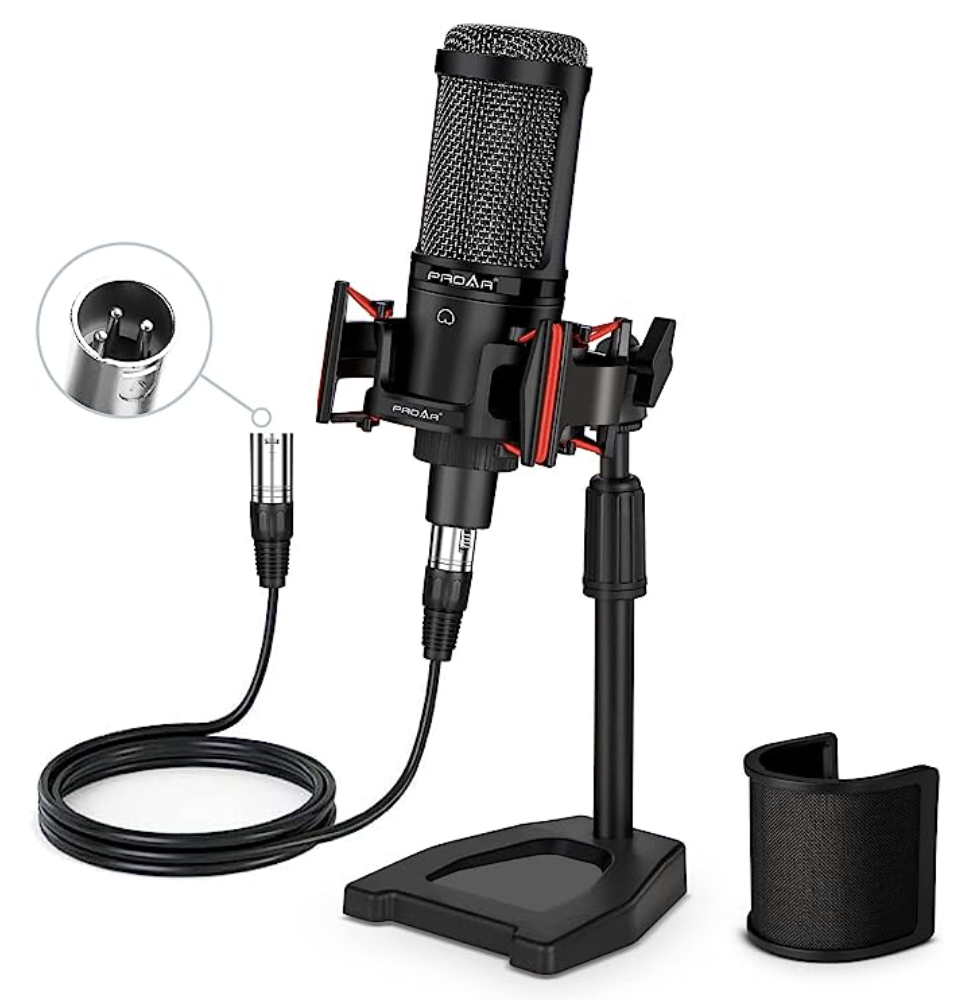
Next, consider your recording environment. Try to find a quiet, echo-free room to record in. You add soft furnishings like curtains, carpets, or even specialized acoustic panels for better sound quality.
Lastly, learn some basic audio editing. You can find free and paid audio editing software options available, like Audacity or Adobe Audition. With these, you can remove background noise, adjust volume levels, and make your podcast sound more professional.
Remember, your listeners are giving you their time and attention. Providing them with high-quality audio with reliable podcasting tools can go a long way in building a loyal audience.
Expert Advice:
Make the most out of your audio editing tool. Create podcast music you can use for intros and outros. Take it up a notch, and use it to create a podcast trailer.
Strategy 6: Make Scheduling Consistent & Predictable
Consistency helps build trust with your audience, improves your podcast's visibility in podcast directories, and can even help you stay organized and motivated.
To maintain a consistent schedule for your podcast, here are 3 things you can do.
First, decide on a publishing frequency that works for you. This could be daily, weekly, twice a week, or monthly. The best frequency depends on your topic, your audience's preferences, and your capacity. Don't forget, it's always better to start small and increase later, rather than starting high and then not keeping that momentum.
Next, create a content calendar. This can help you plan your episodes in advance, keep track of your recording and post-production schedule, and make sure you always have audio content ready to publish.
Finally, communicate your schedule to your listeners. Let them know when they can expect new episodes. This can create anticipation and make your listeners look forward to your next episode.
Consistency is about more than just frequency. It's also about delivering consistently high-quality content. So, while maintaining a schedule, don't compromise on the quality of your podcast.
Strategy 7: Incorporate Listener Feedback
Your listeners are a valuable source of insights to help you improve your podcast. They can offer you new angles, helpful feedback, and even a pat on the back for the work you're doing.
Try these 3 steps so you can effectively incorporate listener feedback into your podcast.
First, actively ask for feedback. At the end of your episodes, encourage your listeners to share their thoughts. You can ask them to leave reviews on podcast platforms, send you emails, or even reach out on social media.
Next, create a system for managing and reviewing feedback. This could be as simple as a dedicated email folder, or a more complex system like a Postgres change data capture solution. The point is to have a place where you can easily access and review your listener feedback.
Finally, act on the feedback. If multiple listeners are suggesting a certain topic, consider covering it in a future episode. If they're pointing out an issue with your audio quality, look into it. Showing your listeners that you value and act on their feedback can help build a stronger relationship with them.
Feedback is a gift. It can offer you a chance to experience your podcast from your audience's viewpoint and inspire tweaks you might not have cooked up yourself. So, embrace it and use it to make your podcast even better.
Strategy 8: Optimize For SEO
While SEO (Search Engine Optimization) is often associated with a blog post, it's just as important for podcasts. Good SEO practices can help your podcast get discovered by more people and turn a potential listener into a loyal subscriber.
To do this, first, do keyword research. Find out what terms people are using when they search for content related to your podcast's topic. like Google's Keyword Planner or SEMRush can be helpful for this. After identifying your search terms, add them to your podcast's title, description, and episode titles.
Next, create show notes for each episode. These are written summaries or transcripts of your episodes that you can post on your website. They give search engines more text to crawl and can help your podcast show up in more search results.
Finally, encourage listener reviews. Reviews can boost your podcast's visibility on podcast platforms like Apple Podcasts, Google Podcasts, and Spotify, which can indirectly improve your SEO. Plus, they provide social proof that can attract new listeners.
But it's a different story if you've established your authority and grown your following to thousands. You'd consider creating your own platform so you can capitalize on brand-related search terms and expand your monetization opportunities. This would entail finding a reliable podcast hosting service, creating a great-looking podcast website, and no downtime podcast player.
SEO is a long-term game. You might not see results immediately, but over time, good SEO practices can significantly increase your podcast's reach and audience.
Strategy 9: Promote On Social Media
Social media can help you reach a wider audience, engage with your listeners, and even attract noteworthy guests.
Here are 3 ways you can effectively promote your podcast on social media.
First, choose the right platforms. You don't need to be on every social media platform. Just focus on the ones where your target audience spends their time the most. This could be Instagram, Twitter, LinkedIn, Facebook, or others.
Next, create engaging content. You could offer them daily podcast tips, a taste of future episodes, standout moments from earlier ones, or even a backstage tour of your podcasting process. Remember, social media is not just about promotion—it's about engagement. So, create content that encourages likes, comments, and shares.
Finally, interact with your audience. Respond to comments, ask for feedback, and participate in relevant discussions. You can even offer solutions and promote your content with subtle calls to action. This can help you build a community around your podcast and make your listeners feel more connected to you.
Social media promotion is about more than just broadcasting your episodes—it's about building relationships and creating a community around your podcast. So, be authentic and engaging.
Expert Advice:
Use your podcast artwork as your social media profile picture or cover, it helps with easier recall and consistent branding.
Strategy 10: Build An Email List
An email list is a direct line of communication with your audience. It lets you share updates, promote new episodes, and even get feedback. Plus, unlike social media followers, you own your email list, which gives you more control over your audience.
So, how can you build and utilize an email list for your podcast? Do these 3 things.
First, set up an email subscription form on your website. Keep the sign-up smooth sailing for your visitors and toss in a reward. It can be exclusive content or early bird access to new episodes.
Next, promote your email list on your podcast and social media channels. Let your audience know the benefits of subscribing and encourage them to sign up.
Once you have a list, send regular updates, but don't spam your subscribers. Make sure every email provides value, whether it's a new episode, an occasional online greeting, a piece of helpful advice, or an exclusive offer.
Finally, engage with your subscribers. Ask for their feedback, answer their questions, and make them feel like part of your podcast community.
An email list is more than just a marketing tool. So, treat your subscribers with respect and provide them with value, and they'll become your most loyal listeners.
Strategy 11: Offer Paid Content Upgrades
Offering Paid Content Upgrades involves providing additional, premium content for a fee. Not only can this generate revenue for your podcast, but it can also deepen your listeners' engagement with your content.
To do this, first, identify what kind of premium content your audience would find valuable. This could be extended interviews, bonus episodes, ad-free versions of your podcast, or even access to a private community. You can find out what your audience wants by simply asking them, either through a survey or on social media.
Next, decide on a pricing model. You could charge per piece of premium content, offer a monthly subscription, or even a yearly membership. The point is to make sure that the price reflects the value your audience will get from the premium content.
Once you have your premium content and pricing model, promote it to your audience. Let them know what they'll get, how much it costs, and how they can access it.
Remember, offering paid content upgrades is not just about making money. It's about providing additional value to your most dedicated listeners. So, focus on creating premium content that your audience will love, and the revenue will follow.
Conclusion
As we wrap up this podcast guide, there's one more crucial point to consider: the power of patience and persistence in podcasting. Creating an engaging podcast isn't an overnight process. It requires consistent effort, continuous learning, and a lot of trial and error. But with each episode you create, you'll get closer and closer to becoming one of the most popular podcasts in your niche.
Every successful podcaster started where you are right now. They faced the same challenges, had the same doubts, and probably made a few mistakes along the way.
So, as you embark on your podcasting journey, keep these strategies in mind. Use them as a roadmap to guide your podcast process. But also remember to stay flexible, stay open to new podcast ideas, and most importantly, stay true to your unique voice and vision.
Of course, you'll need an initial set of audience. We can help you with that. At nichemarket, we promote businesses online by letting them create mini-websites on our platform. See the list of businesses in our directory and find the audience you'd want for your podcast.
About the author
Burkhard Berger is the founder of Novum™. He helps innovative B2B companies implement revenue-driven SEO strategies to scale their organic traffic to 1,000,000+ visitors per month. Curious about what your true traffic potential is?
Tell us your story
Would you like to write for nichemarket just like Burkhard has? Find out how to submit a guest post and when you're ready, you can contact us.
Contact us
If you would like us to improve the advertising for your site or want to know more about digital marketing for your business, then don’t be shy we’re happy to assist. Simply contact us
Are you looking to promote your business?
Business owners can create your free business listing on nichemarket. The more information you provide about your business, the easier it will be for your customers to find you online. Registering with nichemarket is easy; all you will need to do is head over to our sign up form and follow the instructions.
If you require a more detailed guide on how to create your profile or your listing, then we highly recommend you check out the following articles.
Recommended reading
If you enjoyed this post and have a little extra time to dive deeper down the rabbit hole, why not check out the following posts on podcasting.
You might also like
Why Cross-Border Payments Are Slow, Tedious, and Expensive
17 December 2025
Posted by Che Kohler in Money Talks
While we have modernised many industries, surprisingly, digital payments are struggling to keep up, and the old way of transferring funds online has ...
Read moreWhy Video Production Companies Still Outshine AI
24 December 2025
Posted by Che Kohler in nichemarket Advice
A review of traditional video production versus generative AI videos and why businesses might be tempted to go the cheaper route, but it might cost y...
Read more{{comment.sUserName}}
{{comment.iDayLastEdit}} day ago
{{comment.iDayLastEdit}} days ago
 {{blogcategory.sCategoryName}}
{{blogcategory.sCategoryName}}
